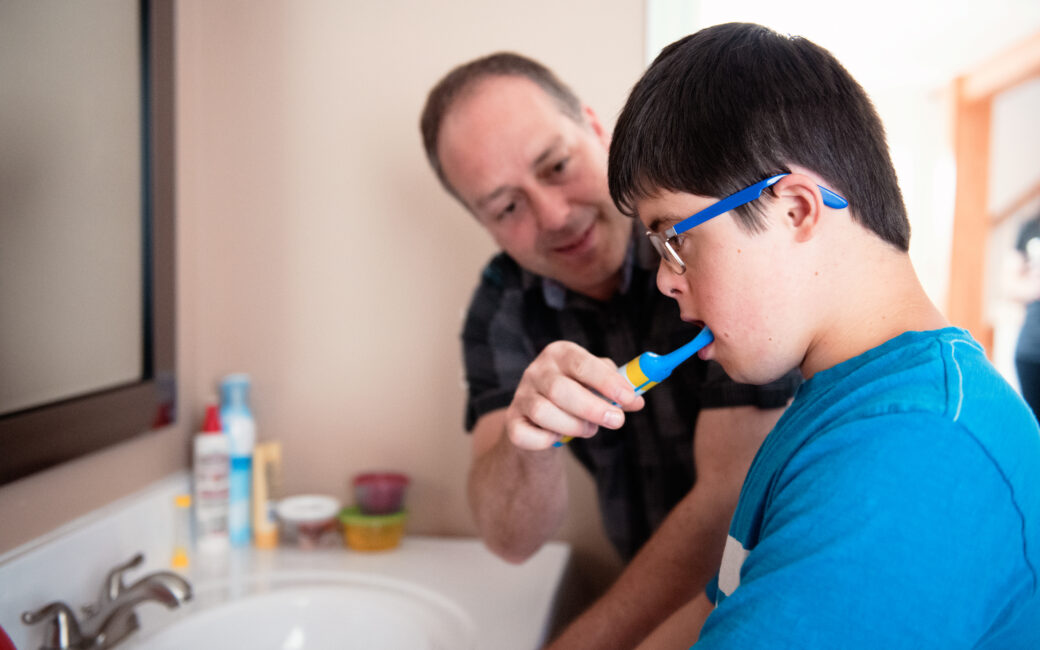Going to the dentist can be scary and overwhelming for people with autism. This includes both children and adults. Various factors, such as the sounds of the drill, the smells, the taste of mouthwash or toothpaste, the crowded waiting room, or the anticipation of having their mouth touched can make a dental visit particularly challenging.
The good news is that a variety of tips and techniques are available to help make the appointment as calm and gentle as possible for the patient. After all, your child’s dental care is important.
Finding the Right Dentist: A positive experience starts before the patient even walks through the door. Finding a dentist experienced in treating children with different sensory/special healthcare backgrounds. At Summerville Pediatric Dentistry, we are equipped and trained to handle sensory issues and other needs of patients on the spectrum.
Talk to Your Child: If your child is old enough, talk to them and show them pictures of what they might see or hear during their dental procedure . Doing a tour so they can see the waiting room and become familiar with the office before their dental appointment may help.
Talk to the Dentist/Office: It’s just as important for the dentist to know about your child’s needs, so be sure to share any relevant information about your child that could help improve their experience. For example, if your child does not feel comfortable with the dental team being so close to them, you may want to consider other accommodations. If a crowded waiting room is an issue, ask if an appointment at a less busy time is possible.
Desensitization: If possible and under a non-emergency situation, gradually introducing the patient to the dental office, exam, and procedures might help to desensitize the experience and the anxiety around the appointment. As each visit results in a more positive experience, the patient might feel more at ease.
Sedation dentistry: Beyond a routine visit, the patient may need a procedure such as a filling, crown, root canal, or extraction. If the patient has trouble staying still during their appointment, they can try sedation dentistry. This can include nitrous oxide (also called ‘laughing gas’), IV sedation, oral sedatives, or general anesthesia.
The American Dental Association supports using nitrous oxide to reduce anxiety during appointments, as it has few side effects. However, for patients younger than five years old or who are crying and breathing through their mouth, it may not work.
Keep in mind that nitrous oxide allows patients to be mildly awake during the procedure. Be sure to inform the team if that might be an issue.
Conscious Sedation: If your child needs a little more sedation, conscious sedation might be a solution. Keep in mind that these sedatives (in pill or liquid form) can have side effects, and each patient with autism reacts differently to them.
Before the visit, we recommend that you have a doctor examine your child. The doctor will check for breathing problems, existing medical conditions, tonsil size, and other medical issues. This will help ensure your child’s health and well-being during the visit.
General Anesthesia: Finally, general anesthesia, where the patient is completely asleep, is the final option and must be administered by a dental or medical anesthesiologist or certified registered nurse anesthetist in a hospital or fully equipped healthcare center.
Building a good relationship with a dentist early and discussing options before any procedures is important. This will help your child have a positive and calm experience at the dentist.
For more information, Contact Summerville Pediatric Dentistry to make an appointment and discuss your child’s needs with our office. We’re happy to help answer any questions or concerns.

